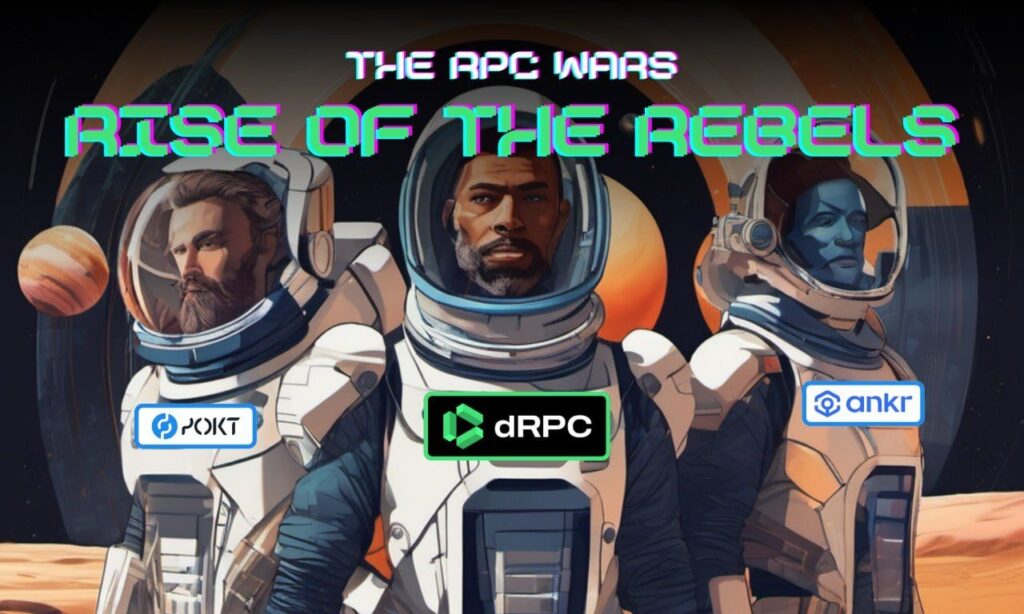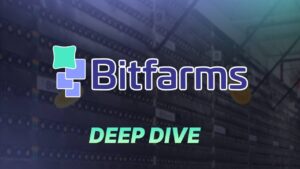RPC Wars: Rise of the Rebels – dRPC, Ankr and POKT

For most of its history, the Web3 infrastructure space was dominated by the central RPC vendors, namely Alchemy and Infura.
Often developers rely heavily on these centralized players without considering the potential risks associated with such a centralized approach. Despite the term “decentralization,” the transition to alternative solutions was slow. However, since 2022 the landscape has started to change, challenging the established choices of developers.
The importance of reliability in evaluating the RPC infrastructure
When evaluating an RPC infrastructure, developers consider various features that contribute to the overall reliability and efficiency of their applications. The three key attributes typically evaluated are cost, latency, and reliability. Among these, reliability emerges as the most important factor, which explains the tendency of developers towards established and proven RPC providers.
While occasional outages and price hikes have been a concern in the past, developers have generally been willing to continue using these services, especially during the market. However, the bear market and proliferation of Layer 2 solutions, appchains and synchains, have forced developers to look for alternatives.
Centralized and distributed RPC providers: coverage and cost
Centralized service providers have shown poor coverage when supporting new chains. Both Alchemy and Infura only support 9 chains, while providers like Ankr, dRPC and POKT support 30-50 chains each and are constantly expanding their coverage. This trend has led more dApps to choose distributed RPC services, even for popular chains such as Ethereum, Optimism and Arbitrum, which reduce their costs by 2-3 times.
Critical factor: Reliability in distributed RPC services
Distributed RPC services deal with reliability challenges in several ways. With its own nodes spread across multiple data centers, coupled with select vendors, Anchor ensures high quality and reliability at a great cost. On the other hand, dRPC operates without its own nodes based on a pool of approved trusted providers and AI-based routing algorithms.
This approach ensures quality, reliability and competitive pricing, but may limit geographic distribution as the connected providers do not cover every city in the world. In the next version of the protocol, dRPC aims to solve the problem by integrating more quality checks and opening the pool to new providers.
POKT, another distributed RPC provider, relies on an unlicensed pool of providers, which provides excellent pricing and better geographic coverage. Despite quality and reliability concerns, POKT has implemented stop and cut mechanisms based on their tokens to encourage providers to maintain node quality.
Search for an optimized RPC service
The market offers different approaches to solve the challenge in RPC services, each of which solves the problem from different angles. Only time will tell the best approach that effectively covers all three key features. As we embrace the multi-chain environment today and expect more successful blockchains to come in the future, it is important not to miss the opportunity and choose an RPC service that meets all your needs.
About the author
Konstantinos Zaytev is the CEO of dRPC.org. Since 2015, it has been fully committed to the blockchain space, successfully growing and supporting several infrastructure solutions. His work in P2P Staking was instrumental in its rapid growth to become one of the largest staking providers on the Web 3 today. His understanding and practical experience in the RPC industry positions him as a top international expert in the field. Follow him with X.
Launch program
Join the dRPC.org program and get 6 months of lightning fast nodes for free.
Find out more about dRPC: Web – Twitter – Discord – Blog
The post RPC Wars: Rise of the Rebels – dRPC, Ankr and POKT appeared first on BeInCrypto.













